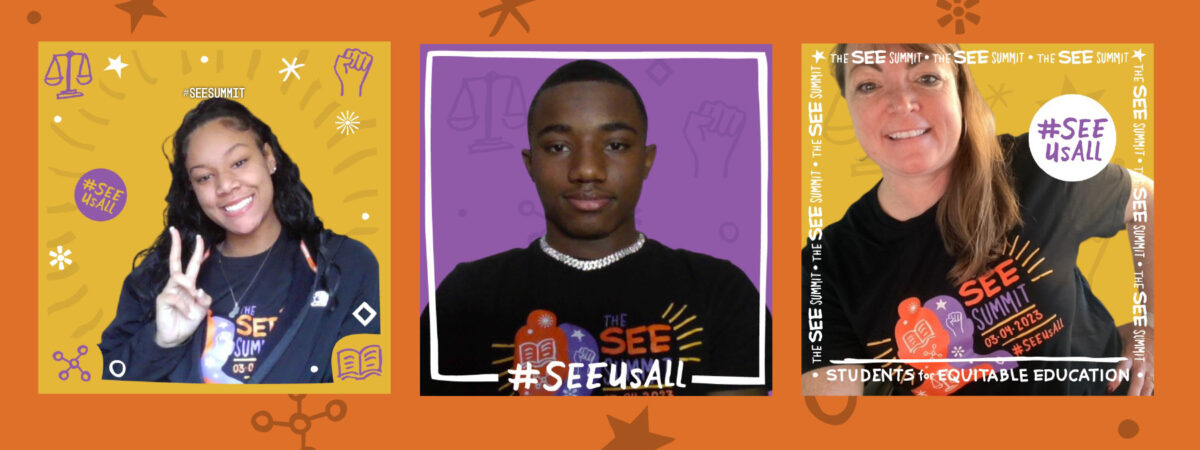
[I hope that] teachers will feel reassured that we appreciate them for all that they teach us, but that they also feel just a little uncomfortable by the ideas that we’re talking about so they can broaden their perspective, understand students better, and have an open mind,” said Madison A., a student leader. While students offered valuable insights to those in attendance, their vision for a more equitable educational experience has broad applications for educators, school administrators, and district leaders beyond the summit attendees.
Students as Agents of Change
Many student leaders emphasized the importance of student agency in the fight for equitable education and that they want to be active participants in shaping their experiences in school. Presentations like “Classroom Assimilation with Implicit Bias” and “Real Talk: How Can We Improve Students’ Motivation at School” focused on how teachers and school administrators can challenge long-standing behaviors and policies that can be harmful to students. “There can be a big disconnect between teachers and students, and conferences like this are really vital in actually bringing us closer together,” said student leader, Pedro N. “There are a lot of educators that are willing to make a change. That gives me a lot of hope.”
Equity as a Process
Some presentations emphasized the need for a long-term, sustained approach to equity, with a focus on building relationships, fostering dialogue, and engaging in collaborative problem-solving between teachers and students. In her session entitled, “Making Welcome Spaces for LGBTQIA+ Students,” Crystal S., a student leader, highlighted how achieving equity for students is not a one-time event, but rather a continuous process that can take the form of small changes in their day-to-day interactions with students. “It is important to create safety and security for your students, and that can come in the form of art or meditation,” Crystal shared. “Even taking five minutes out of the day to create a calming space can help students process and share what’s going on.”
The Power of Reflection
The SEE Summit highlighted the importance of self-reflection for educators to mitigate instances of harm. Across sessions, student leaders emphasized the need for school and district leaders to foster safe spaces for students and educators to approach difficult conversations. “It is important to build a culture of self-reflection when it comes to microaggressions,” said Brandon M., a student leader from Rowland Unified School District in California. Student leaders outlined ways that educators can acknowledge, examine, and address certain biases that might prevent them from supporting their students, starting by engaging directly with students to co-create solutions.
The 2023 SEE Summit showcased the power of elevating student voice. By prioritizing equity and centering—and listening to—student voices, educators and school administrators can take meaningful steps to create a more just and inclusive education system that enables all students to thrive.
Interested in exploring more opportunities to celebrate student voice and vision? Check out this year’s YouthMADE festival, which celebrates youth creativity and innovation by inviting students, educators, advocates, and organizations around the globe to host and join events showcasing youth-led work.